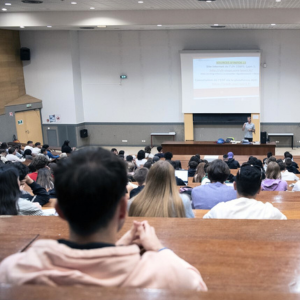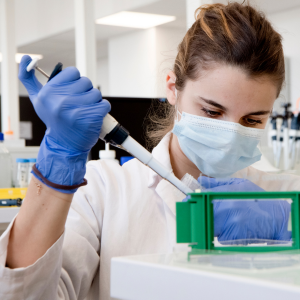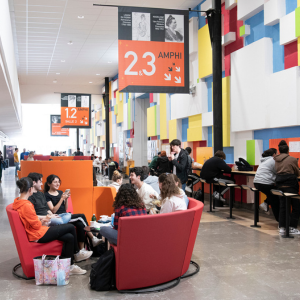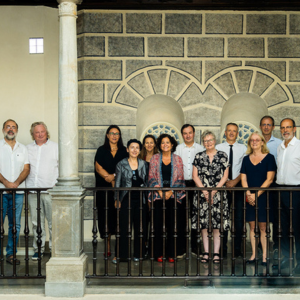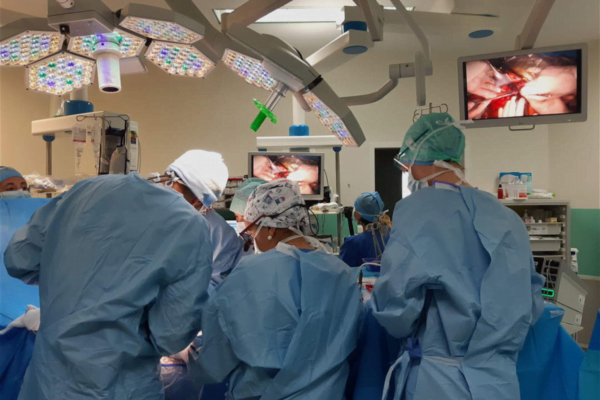- Lire la suite3 M€ obtenus pour soutenir le projet de rénovation énergétique des bâtiments du campus Gratte-CielEvènement / Annonce
Fin mars, le Ministère de l'Enseignement Supérieur et de la Recherche a annoncé les 79 établissements lauréats de l’appel à projets 2024 de la DIE (direction immobilière de l’État) avec une enveloppe de 118M€ pour la rénovation énergétique de leurs bâtiments. L’Université Claude Bernard Lyon 1 fait partie des 10 universités françaises les mieux financées dans cet appel à projets en obtenant 3 145 662€.
- Lire la suiteLancement du Career Explorer, la solution pour aider les étudiants à prendre en main leur orientationFormation
Le consortium Scale, composé de l’Université Claude Bernard Lyon 1, JobTeaser, acteur majeur de l’insertion professionnelle des jeunes talents, de l’INSA Lyon et de l’Université Lumière Lyon 2, engagée sur le volet recherche annonce le lancement du Career Explorer : le premier programme de formation hybride sur l’orientation.
- Lire la suiteRégularité du cycle menstruel : une horloge biologique modulée par la lune ?Publication scientifique
Une nouvelle étude d'une équipe de recherche internationale associant l’Inserm, le CNRS et l’Université Claude Bernard Lyon 1, a montré que le cycle menstruel serait finement régulé par une horloge interne, elle-même influencée de manière occasionnelle par le cycle lunaire.
- Lire la suiteMATh.en.JEANS à l’UCBLEvènement / Annonce
Les 4 et 5 avril 2024, l’Université Claude Bernard Lyon 1 a accueilli les 317 élèves des collèges et lycées de la région Auvergne-Rhône-Alpes qui ont participé à MATh.en.JEANS.
AGENDA
- 29avr. 31maiSpectacle, Exposition Festival Les Arthémiades
- 07maiSpectacle Spectacle Drag & Talk (dans le cadre des Arthémiades)
- 16maiAction, Formation pro Formation webinaire « Accompagnement des élèves LGBTQI » avec Morgan N. Lucas
- 16maiAtelier / rencontre Carte blanche à Valérie Martinez
Hall de la BU
L'UNIVERSITÉ EN CHIFFRES
46 000 étudiantes et étudiants
450 diplômes & 10 000 diplômés par an
7 523 publications en 2022
13,5 M€ dédiés au soutien direct à la recherche en 2023 (fonctionnement, appels à projets)
1ʳᵉ université française en nombre de brevets déposés (INPI 2022)
LES GRANDS PROJETS
Les grands projets de l’Université s’inscrivent dans sa stratégie académique et ses valeurs de diversité, d’agilité, de solidarité et de responsabilité. Ces projets structurants, alignés sur les priorités de l’État, renforcent ses missions de formation, de recherche et d’innovation de rang mondial et permettent le développement d’infrastructures et de services conformes aux standards internationaux.
Ils façonnent ainsi une université toujours plus ancrée sur son territoire et résolument tournée vers l’avenir. Par ces projets variés, l’Université Claude Bernard Lyon 1, avec ses nombreux partenaires, abordent, via une approche pluridisciplinaire, les défis complexes de notre société : transformation numérique, inclusion, environnement, intelligence artificielle, santé…
Les projets scientifiques confirment le rôle moteur de l’Université pour le développement d’une recherche d’excellence et de l’innovation scientifique et affirment sa place d’acteur engagé pour un monde plus soutenable et durable.
INCLUSION & NUMÉRIQUE - Démonstrateur INCLUDE
RECHERCHE & FORMATION EN SANTÉ - SHAPE-Med@LYON
FORMATION PAR LA RECHERCHE - Projet Graduate +
NUMÉRIQUE - Centre de Calculs et de Données LyonTech - la Doua
SCIENCES POUR TOUS
SCIENCES EN RÉCITS
 Découvertes, prix, innovations : à l’Université Lyon 1, des parcours et des trajectoires extraordinaires se dessinent chaque jour. Comment ces aventures sont-elles vécues par leurs protagonistes ? Ils sont étudiants, étudiantes, enseignants, enseignantes, scientifiques, et témoignent en quelques minutes des temps forts de leurs histoires hors du commun.
Découvertes, prix, innovations : à l’Université Lyon 1, des parcours et des trajectoires extraordinaires se dessinent chaque jour. Comment ces aventures sont-elles vécues par leurs protagonistes ? Ils sont étudiants, étudiantes, enseignants, enseignantes, scientifiques, et témoignent en quelques minutes des temps forts de leurs histoires hors du commun.Entrez dans les coulisses d’une Université de sciences, technologies, santé et sport, et écoutez les récits de vie de celles et ceux qui l’animent.
UNIVERSITÉ OUVERTE
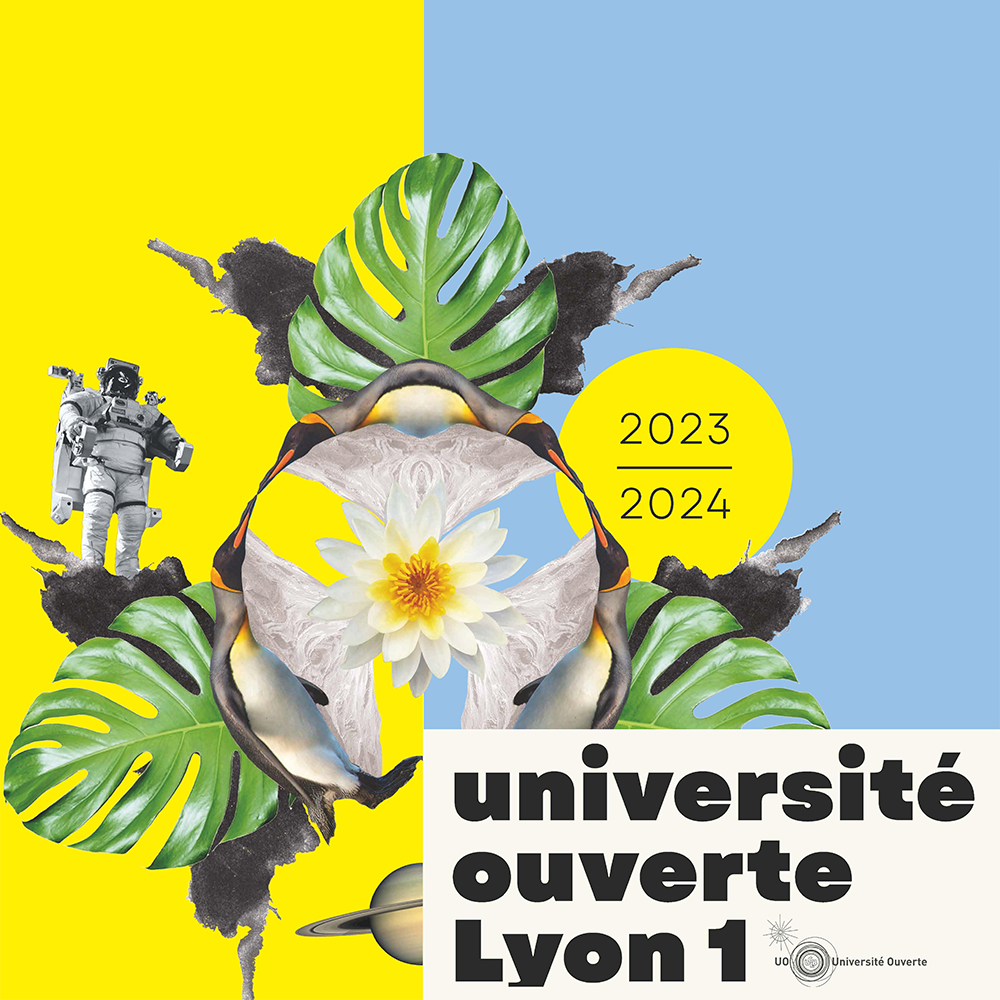 Découvrir la biologie ou la physique, s’initier à l’histoire de l’art et des sciences, s’émerveiller de la beauté de notre monde et s’interroger sur celui que l’on bâtit pour demain… C’est la mission de L'Université Ouverte de partager avec le plus grand nombre les progrès scientifiques et les questions qu’ils posent.
Découvrir la biologie ou la physique, s’initier à l’histoire de l’art et des sciences, s’émerveiller de la beauté de notre monde et s’interroger sur celui que l’on bâtit pour demain… C’est la mission de L'Université Ouverte de partager avec le plus grand nombre les progrès scientifiques et les questions qu’ils posent.Près de 190 conférences et ateliers pour apprendre, approfondir vos connaissances mais aussi forger votre propre opinion sur des sujets à fort enjeu sociétal ou à controverse.



 fr
fr en
en
 es
es

